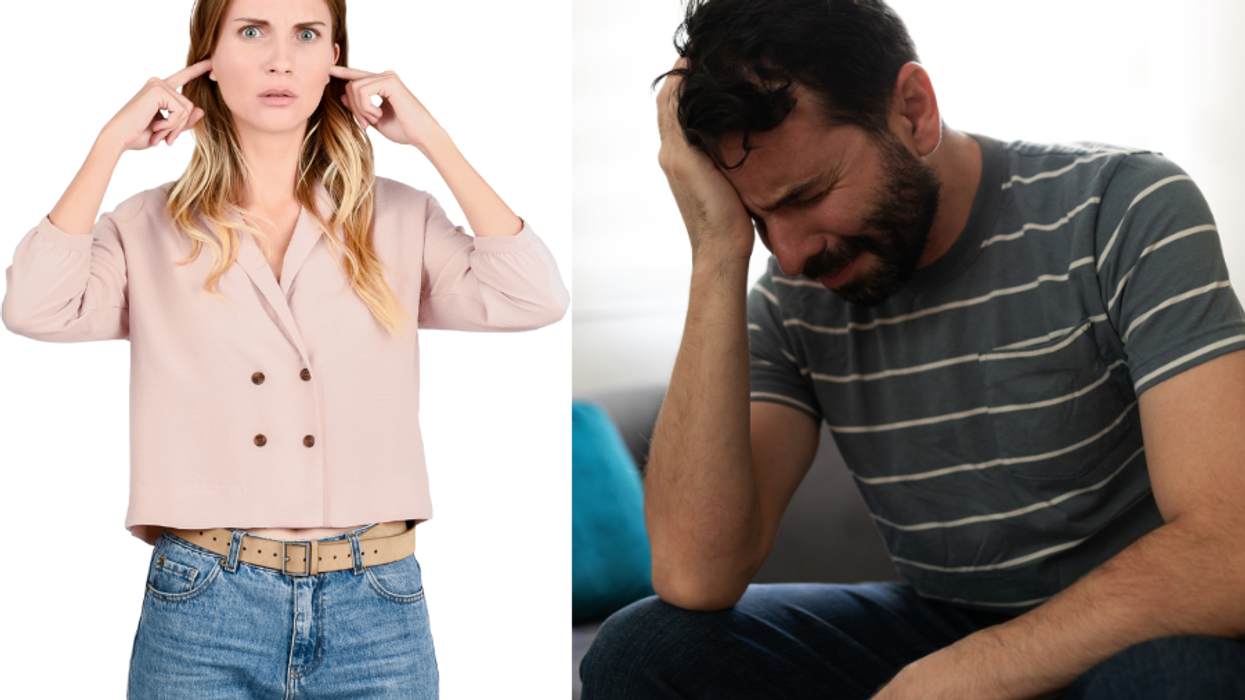Many men grow up in households, or within broader cultures, that prioritize so-called "toughness" over vulnerability, treating tears like signs of weakness. A lot of guys would never dream to cry in front of anyone, even their family members, and if you have that mocking voice in your subconscious, it can be difficult to shake even in a society that’s at least outwardly concerned about toxic masculinity.
Granted, some guys probably hold back their emotions because it can feel uncomfortable to vent in the wrong setting. Even some close friendships are engineered for escapism—you might prefer to spend your hang-outs talking about movies or sports than venting about childhood trauma. You would, however, expect that most romantic relationships would foster vulnerability, but that’s not always true.
- YouTubewww.youtube.com
In a recent Reddit thread posted on r/AskMenAdvice, one guy worries that opening up to his girlfriend may have "destroyed" their relationship. The OP admits that he used to be have "the emotional capacity of a rock"—being "the type of guy who could sleep with multiple different women in a week and not feel a thing." But his perspective shifted after meeting his girlfriend, "the very first person" he cares more about than himself—and the first he felt comfortable showing "true emotions."
He says their relationship used to be very warm and open—she would vent about work, ask for advice, share stories from her past, and "do cute little things" for him. But the vibe shifted, he argues, after he opened up emotionally following the death of a dog he grew up with.
"I just broke," he writes. "It was the first time in years or even a decade that I cried. I just couldn’t hold it anymore... somehow this also opened up other things inside of me that I didn't deal with emotionally ever. Like for example that [I] basically grew up without a mom and the fact that I was very insecure about my body for a long time because of my weight (which made me go into the other direction later on where I do sports nearly every other day to never be overweight again). This whole venting felt really good, but all my GF answered afterwards was 'Are you done? Then you better go to sleep.'"
He found her reaction "pretty odd" but didn’t think much about it—until, he says, he started noticing changes. He now wonders if he "lost her respect" by opening up.
The responses are well worth wading through, partly because their sentiments are all over the map. A lot of people sympathized with the Redditor, while others criticized his reaction. Some messages, like the top comment, are simpler and somewhat neutral: "Never stay where your true emotions are not welcome."
- YouTubewww.youtube.com
One user wrote that, if simply crying in front of his girlfriend changed her opinion, it’s ideal that he found out now. "Best move would be to sit her down and tell her you feel like things have changed and ask why," they wrote. "Reminder her you’re asking to understand not to argue and hopefully you’ll get your answer. Maybe it’s a bump in the road that’s unrelated, maybe it isn’t, but have the tough conversations now because if it’s something that’s gonna make her walk out you might as well rip that band aid off now and get it over with." Someone else argued that anyone reacting this way, seeing vulnerability as a sign of weakness, "is not a life partner."
Other users argued that the OP’s past behavior created some kind of karma. "He spent years giving that energy towards women, now it’s coming back," reads one response. "Not to say it’ll be like that forever, but they do say what goes around comes around. Now you’ve learned the importance of being caring towards partners and the value of genuine connection. Take this L that you admittedly know you deserve, and grow from it."
One Redditor looked more analytically at the very nature of their initial attraction: "She is attracted to men that are emotionally unavailable. That is why she got with him in the first place. Then when he became caring and emotionally available, she went off him. It’s perfectly logical."
It’s worth pausing here to look more closely at "toxic masculinity," a term that may seem recent but has actually existed for decades. The Anxiety & Depression Association of America considers the "core tenants" to be "anti-femininity" ("men reject any and all feminine traits, including most emotion, accepting help, and domesticity"), "power" ("men are worthy only if they have money, power, status, and influence"), and, perhaps most relevant to this story, "toughness" ("men are strong, aggressive, and emotionally hardened").
The easiest way to understand reactions to men crying is, of course, to ask—and lots of people have done just that. The LAHWF YouTube channel filmed a video called "People on men that cry," asking strangers on the street, including some couples, about this topic.
- YouTubewww.youtube.com
In one interesting response, someone said their comfort level with crying men is contextual. Should men be more emotionally vulnerable? "Yes, but not too early in the relationship. … It could be a turn-off." Someone else said they don’t consider it a problem at all: "I think everyone should have an opportunity to be vulnerable, regardless of your gender." Lots of people agreed that men being emotionally vulnerable is a good thing.
Of course, there’s no way to know exactly how often men cry, though it’s always interesting to look at the data we have. Citing a study of 7,000 adults across 37 countries, a 2017 article by the American Psychological Association found that men shed "emotional tears" 5-17 times per year, compared to 30-64 times for women.



















 What foods would you pick without diet culture telling you what to do?
What foods would you pick without diet culture telling you what to do?  Flexibility can help you adapt to – and enjoy – different food situations.
Flexibility can help you adapt to – and enjoy – different food situations.
 Revenge can feel easier than forgiveness, which often brings sadness or anxiety.
Revenge can feel easier than forgiveness, which often brings sadness or anxiety. 
 In the past two years, two malaria vaccines have become available for babies starting at 5 months of age.
In the past two years, two malaria vaccines have become available for babies starting at 5 months of age. By exploiting vulnerabilities in the malaria parasite’s defense system, researchers hope to develop a treatment that blocks the parasite from entering cells.
By exploiting vulnerabilities in the malaria parasite’s defense system, researchers hope to develop a treatment that blocks the parasite from entering cells. Created with
Created with 

 Volunteers who drive homeless people to shelters talk with a person from Ukraine in Berlin on Jan. 7, 2026.
Volunteers who drive homeless people to shelters talk with a person from Ukraine in Berlin on Jan. 7, 2026.
 Tasks that stretch your brain just beyond its comfort zone, such as knitting and crocheting, can improve cognitive abilities over your lifespan – and doing them in a group setting brings an additional bonus for overall health.
Tasks that stretch your brain just beyond its comfort zone, such as knitting and crocheting, can improve cognitive abilities over your lifespan – and doing them in a group setting brings an additional bonus for overall health. Overdoing any task, whether it be weight training or sitting at the computer for too long, can overtax the muscles as well as the brain.
Overdoing any task, whether it be weight training or sitting at the computer for too long, can overtax the muscles as well as the brain.